Ghana
Ghanaians will be voting on December 7, 2020 in general elections. The keenly watched poll is a re-election push for the two main presidential candidates. Incumbent Nana Addo Dankwa Akufo-Addo and former president John Dramani Mahama.
The winner will be serving their second and final term as president of one of Africa’s stable democracies. The vote is the eighth consecutive since the return to multi-party democracy in 1992.
The voting process
Ghana employs a series of processes in ensuring transparency, fairness and credibility of the polls.
The main elements include use of ballot papers, biometric verification processes, a secret ballot and transparent ballot boxes. The ballot papers are foldable sheets of paper bearing details of each candidate. It has three slots per candidate – the photo, the party’s symbol and a space for the thumbprint mark. Ballot papers are the basic voting material.
But before a person is handed the ballot paper, he or she must have presented their voters card at a polling station and gone through biometric identification process, which involves placing their finger on a biometric verification device(BVD).
If it fails to recognize their details, there is room for a manual process after the party officials and Electoral Commission, EC, are satisfied with the processes. A person with a stamped ballot then enters a voting booth where they are supposed to cast their ballot and fold their papers before dropping it in a transparent box set in the open.
Ghana previously used opaque boxes and with that there were reports of ballot stuffing in party strongholds especially, hence after a series of electoral reform proposals the transparent ballot boxes were adopted in 2000.
Major figures around the poll / declaring a winner
Over 17 million voters were registered in a contentious compilation of a new register earlier this year. The main opposition National Democratic Congress, NDC; called the move unnecessary but it was defended by the ruling New Patriotic Party.
The number of voters is two million up from the 15 million that were captured for the 2016 election. Being a general election, voters will elect a president and some 275 members of parliament across the 16 regions.
There are a total of 33,000 polling stations as against (over 28,000 stations in 2016) dotted across the country where the EC will be supervising affairs with security agencies to conduct the country’s eighth successive general election.
After voting, counting and collation takes place. The former at the polling station before certified figures are then transmitted to the constituency collation centers. From that point, parliamentary results are declared.
In the case of the presidential race, results are counted and transmitted to collation centers from where there is an onward transfer to the national collation center where the EC boss acts as a returning officer and thus the only person bound by law to declare a president-elect.
Ghana operates the usual 50%+1 rule for a candidate to be declared winner of a presidential vote whiles the first past the post is used to determine a winner in all of the parliamentary contests.
Ghana’s parliament has been a strong pillar of its democracy since 1992. There has a trend where the party that produces the president has always had majority in the parliament. There are currently 275 seats spread across the 16 regions.
Background
This is the eighth successive election. The previous seven have produced five presidents till date. But there have been only two parties that have managed to win the presidency.
The ruling NPP has produced incumbent Nana Akufo-Addo and John Agyekum Kuffuor (2000 – 2008) whiles the main opposition NDC has produced the late Jerry John Rawlings (1992 – 2000), late John Evans Atta Mills (2012 – 2016) and John Dramani Mahama (2012 – 2016).
A dozen presidential aspirants
There are a dozen contestants in the race including three women. One of them being a former first lady Nana Konadu Agyemang Rawlings who is leading the National Democratic Party, NDP.
The two others are Akua Donkor of the Ghana Freedom Party, GFP; and Brigette Akosua Dzogbenuku of the Progressive People’s Party, PPP. There is also an independent candidate in the person of Alfred Kwame Asiedu Walker.
The incumbent Nana Addo Dankwa Akufo-Addo aged 76 is the Presidential candidate of the New Patriotic Party (NPP). He is a lawyer by profession and holds a B. Sc. in Economics. He holds the number 1 position on the ballot paper for the 2020 elections.
John Dramani Mahama aged 62, is the Presidential candidate of the National Democratic Congress (NDC). He is a Media / Communication specialist by profession and holds a post-graduate diploma in communication studies. He holds the number 2 slot on the ballot paperfor the 2020 elections.
All set, COVID-19 rules
A smooth campaign so far, devoid of any incidents. The EC says it is ready to conduct a credible process. The security agencies say all is set on their part and civil society organizations continually caution of the need to preserve the peace before, during and after the vote.
There is also a strong COVID-19 protocol being advertised by the election body. All their informational materials are bearing the necessity of wearing masks and maintaining social distancing at polling centers. How feasible that will be at crowded centers remain to be seen.
Who gets to sit in the next parliament and to occupy the flagstaff house (seat of president) is the keener outcome that Ghanaians will await after December 7.
Security agencies together with the Commission will ensure there is peace across all the 38,622 polling stations for the Presidential and Parliamentary general election on 7th December 2020.



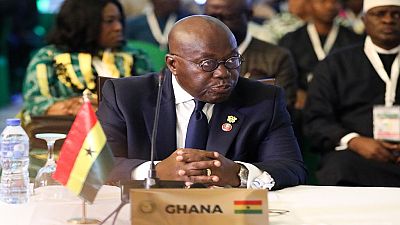

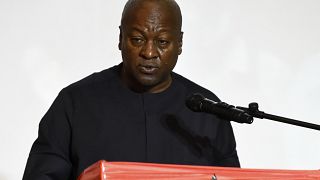
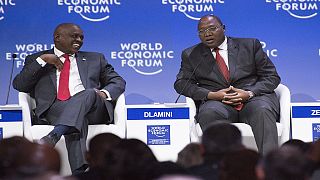
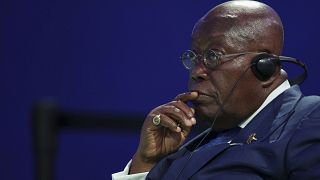
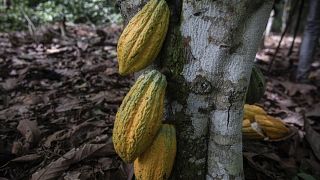
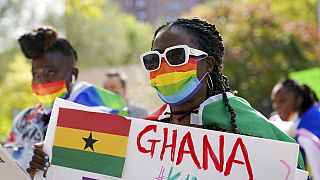
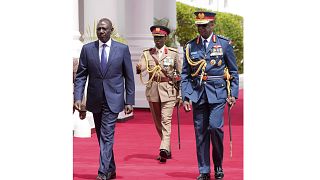
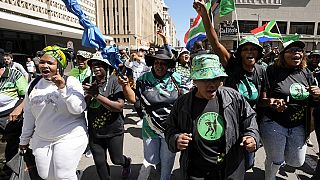
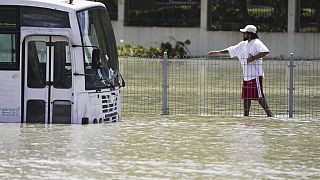
01:20
Egypt leads in medals as the 13th All-Africa Games come to an end
01:57
All-Africa Games: Mauritius dominates cycling as Egypt collects 91 gold medals
01:02
Pics of the day: March 5, 2024
00:59
Ghana: Anti-LGBTQ bill not yet at president's desk
00:45
Ghana: Finance ministry warns country stands to lose $3.8B over controversial anti-LGBTQ bill
00:39
Guiness World Record: Ghanaian chef's attempt fails